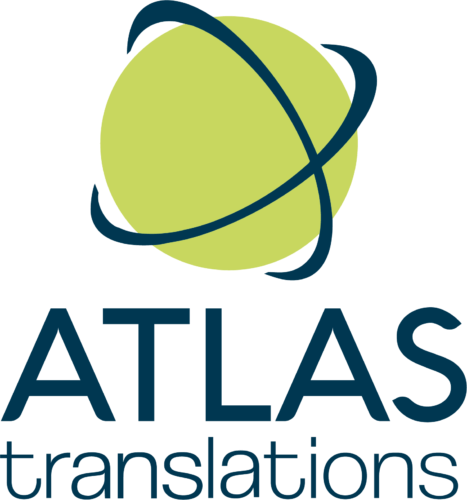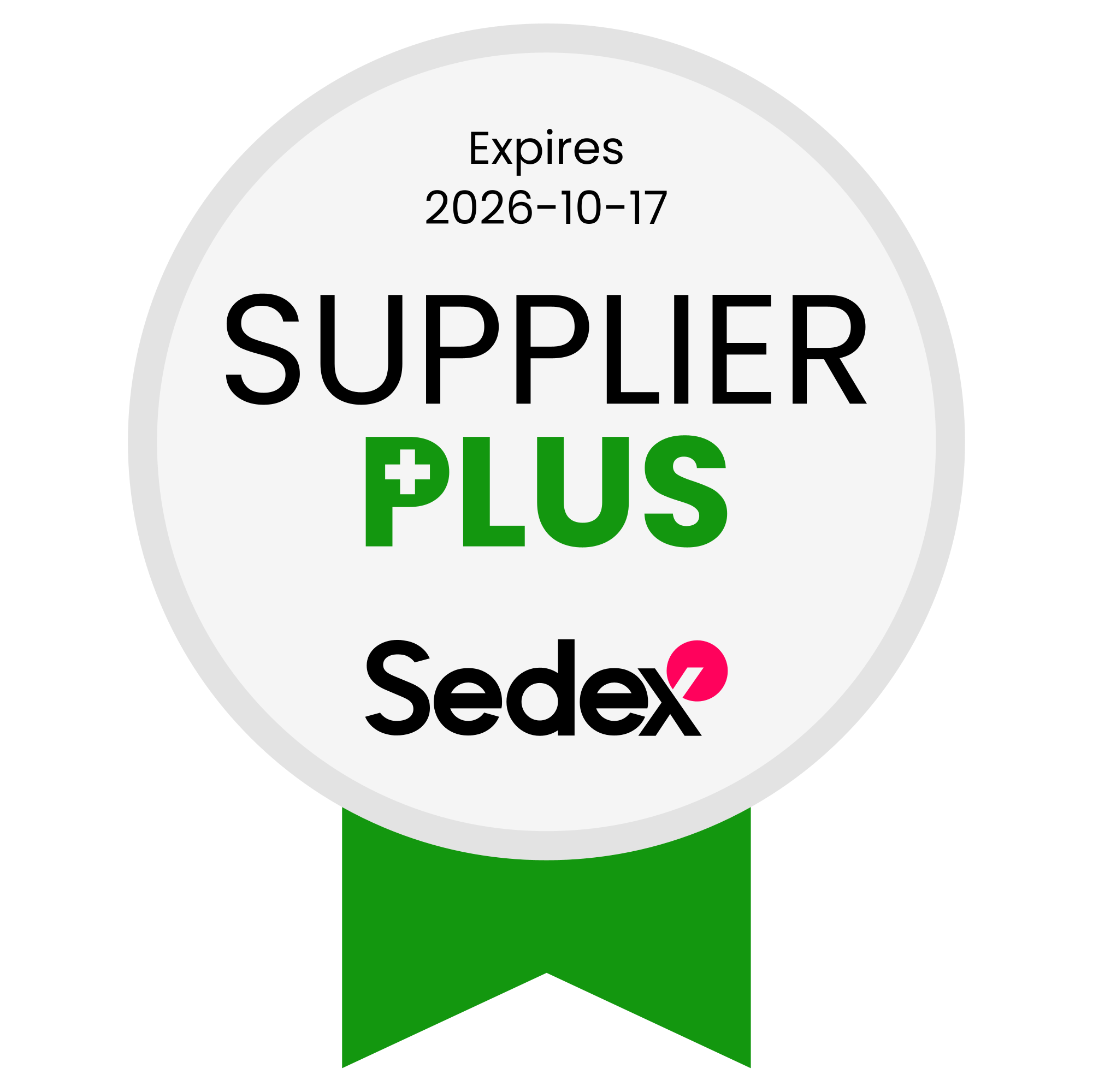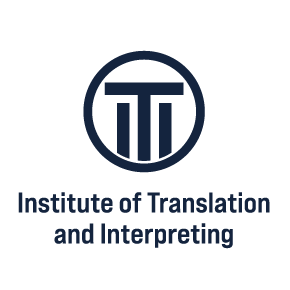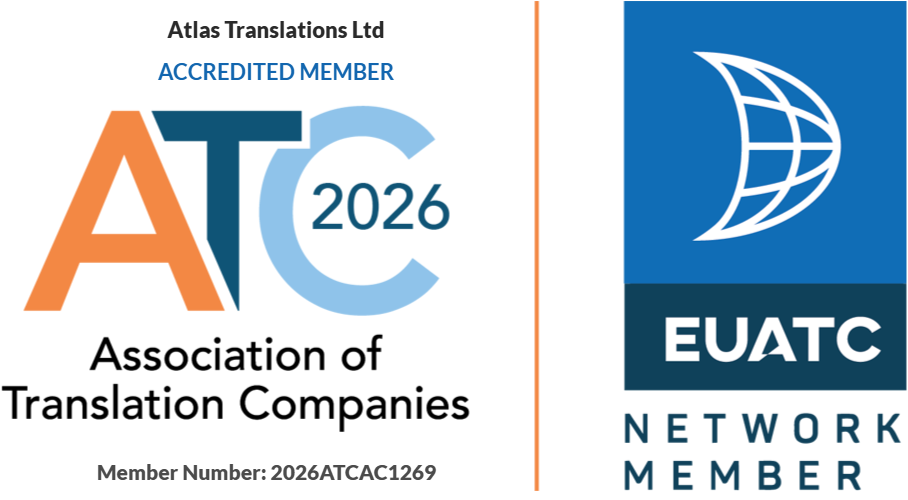AI and Clinical Trial Translation: Where Technology Meets Patient Safety Goals
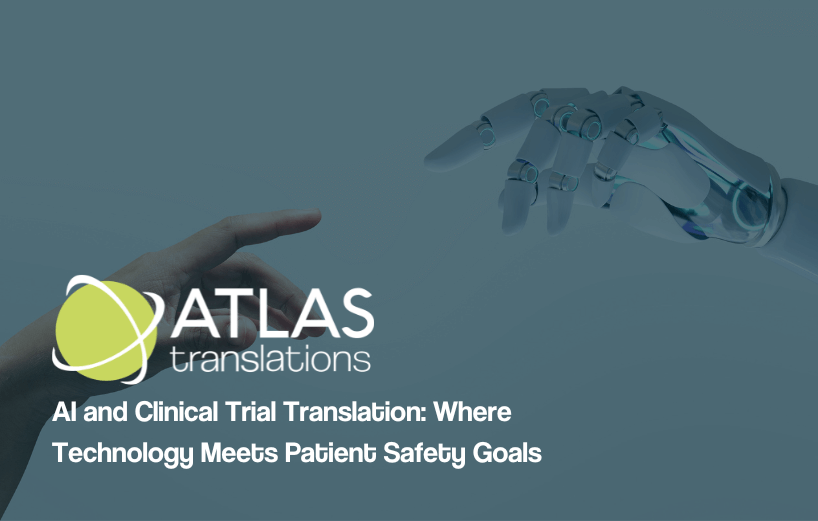
Thousands of clinical trials are running simultaneously across multiple countries, with the global market set to reach an eye-watering $132 billion by 2033. Each trial generates a mountain of documentation that requires precise translation, from informed consent forms to adverse event reports. It’s no wonder pharmaceutical companies are eyeing artificial intelligence (AI) translation like the Atlas team eyes up cake. But here’s the billion-dollar question: when patient safety and regulatory compliance hang in the balance, can we really trust AI with clinical trial translations?
We’ve been navigating this technological shift for years, most recently with the AI boom we’ve all been experiencing. Whilst AI offers genuinely useful support tools, the complexity of clinical trial documentation demands human expertise that technology can’t replicate. Let’s explore where AI helps, where it falls short, and how smart translation agencies are striking the right balance.
What can we help with today? Call us on +44 (0)1727 812 725 or email us at team@atlas-translations.co.uk – we’re only a call, chat, or email away, and we’re always eager to help!
The Promise of AI in Clinical Trial Translation
Speed and Consistency Benefits
AI can certainly speed up certain aspects of clinical trial translation. For initial drafts of standard protocols, AI tools provide a working foundation that translators can refine. Machine translation helps maintain terminology consistency across multi-site trials, which is incredibly useful when coordinating research across twenty countries. AI also spits out repetitive content in seconds rather than hours, offering gigantic time savings for standardised protocol sections.
Cost Considerations That Attract Sponsors
Let’s be honest: when AI translation providers promise to slash costs by, let’s say, 70%, we all know pharmaceutical executives take notice. The pressure to accelerate drug development while managing budgets means sponsors are always exploring any technology that might give them an edge. Here at Atlas, we understand this; getting life-saving treatments to patients faster is a goal we all share.
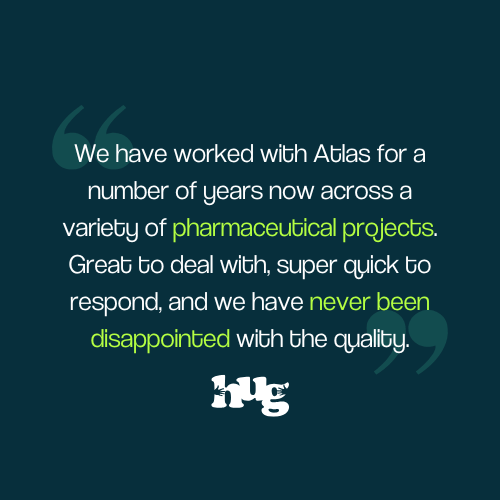
Where AI Falls Dangerously Short
The Informed Consent Challenge
Informed consent forms aren’t just legal documents; they’re one of the foundations of ethical clinical research. Documents that must be clear and understandable to patients from diverse backgrounds. By now, we’ve all seen AI go loosey-goosey in its translations. When it takes the phrase, “mild discomfort”, and returns it as “short pain” along with the more terrifying “slow death” 😲
Either way, these would be two translations considered unnecessary or dangerous.
Here’s another example: an AI system translated “randomisation” into Spanish using a term implying “random chance” rather than “systematic random assignment.” This seemingly small difference could invalidate an entire trial if patients don’t understand they’ll be systematically assigned to treatment groups.
Cultural sensitivity matters too! What’s appropriately direct in Germany might seem a tad too harsh to patients in Japan.
Regulatory Compliance Complexities
Different regulatory bodies have specific requirements, and they’re definitely not forgiving of any errors. The EMA wants documents formatted one way, while the FDA prefers another. The MHRA has its own post-Brexit expectations. AI doesn’t understand that a term acceptable to one regulatory body might raise red flags with another.
We recently read about how an AI translation caused a three-month delay in regulatory approval. The AI had translated a drug formulation term correctly in isolation but failed to recognise when the same term appeared in a different regulatory context, requiring an alternative translation. That “cost-saving” AI translation ended up becoming rather costly indeed.
Medical Context and Patient Safety
Medical translation involves a bit more than just converting words. It involves understanding context and consequences. We’ve seen AI translate “drug-naïve patients” in ways that completely changed trial inclusion criteria. Even worse is when dosing instructions are technically translated correctly but end up missing crucial culturally based context about how medications are administered.
When dealing with adverse events, context is everything.
“Patient experienced shortness of breath”, okay, how? During exercise? At rest? Gradually worsening?
The nuances human translators catch could be the difference between identifying a serious safety signal and missing a critical pattern.
The Hybrid Approach: Getting the Best of Both Worlds
Where We Use AI Tools Effectively
We’re not technology luddites. We use AI-powered tools where they add value:
- Translation memory systems make sure “hyperglycemia” is consistent throughout a 10,000-page submission
- Quality assurance checks flagging if 120/80 became 120/180 in translation
- Format preservation, maintaining complex regulatory document layouts
- Initial glossary development, giving translators a consistent terminology foundation
Where Human Expertise Remains Essential
But here’s what we never leave to machines:
- Medical review by subject matter experts who understand the topic area
- Cultural adaptation of patient materials
- A genuine understanding of local healthcare systems
- Regulatory document finalisation, where one wrong word could trigger a query or denial
- Back-translation verification for critical documents like informed consent forms
Here’s another example: During quality assurance checks on an Oncology clinical drug trial, a hybrid AI/Human approach was being used. The AI correctly translated dosage amounts but missed a subtle change in administration frequency appearing later in the process. The human medical translator, understanding the drug’s dosage and administration, immediately recognised this would result in dangerous overdosing.
That’s not just quality control, that’s potentially saving lives.
Choosing the Right Translation Partner for Clinical Trials
When evaluating translation agencies, ask all the questions. Especially the tougher ones. How do they use AI? If they promise “fully automated” clinical trial translations at rock-bottom prices, that’s a red flag.

Expect a transparent discussion about balancing technology with human expertise. If you don’t get one, ask for one.
Seek agencies with both ISO 17100 certification for translation services and ISO 9001 for quality management.
Atlas Translations holds both certifications because there’s no room for error in clinical trial documentation.
Ask about project managers who speak both “tech” and “person”, i.e., professionals leveraging AI’s efficiency while never losing sight of the human patients at the heart of every trial.
Summary
AI in clinical trial translation is a tool for the toolbox, not a solution. There’s no arguing the genuine benefits of consistency and speed. But it cannot replace the medical knowledge, cultural understanding, and regulatory expertise that professional human translators bring.
Patient safety and trial integrity aren’t areas where we can afford to cut corners.
The smart approach isn’t choosing between AI and human translation; it’s knowing that both can be employed when practicable.
Professional translation agencies serve as the crucial bridge between technological efficiency and medical accuracy. After all, in clinical trials, the cost of mistranslation far exceeds any savings from automation. Even the cleverest AI hasn’t spent years in medical school or sat through a regulatory audit, and until it does, we’ll keep our human experts firmly in charge of keeping patients safe.
Contact Us
You can call us on +44 (0)1727 812 725 or email team@atlas-translations.co.uk. We respond quickly to all enquiries and are always happy to chat about your needs.
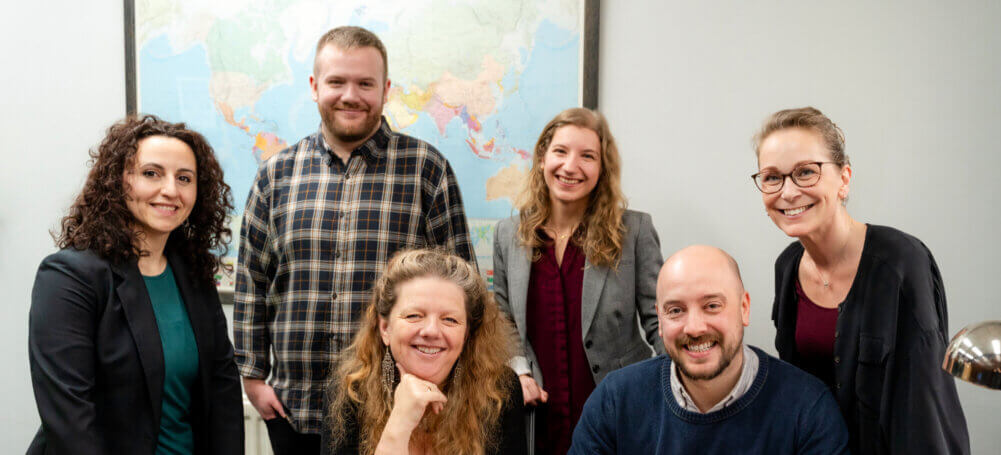
If you’d like to visit us in person to learn more about our services or to drop off documents, just give us a call or email us to arrange a time.
During UK working hours, you can also use our Live Chat option (located at the bottom right of the home page). You’ll always be connected with a real person, not a bot!
And if you need a super speedy estimate, our Get a Quote button at the top of the website makes it super easy.
Can I Trust Atlas Translations?
Atlas Translations is certified to ISO 9001:2015 (Quality Management) and ISO 17100:2017 (Translation Services) standards.
For confidential projects, we’re happy to sign a non-disclosure agreement (NDA).
We’ve been registered with the Information Commissioner’s Office (ICO) for over 20 years, reflecting our long-standing commitment to privacy and data protection.
We’re proud to provide fast, friendly, high-quality services—but don’t just take our word for it. Check out our client testimonials and TrustPilot reviews.
Global Voice, Local Touch
If you’re looking for some top tips for partnering with Atlas Translations, we have some top tips to share! We answer 25 of our clients’ most frequently asked questions, ranging from typesetting queries to discussing reference materials.
Click to download Global Voice, Local Touch
